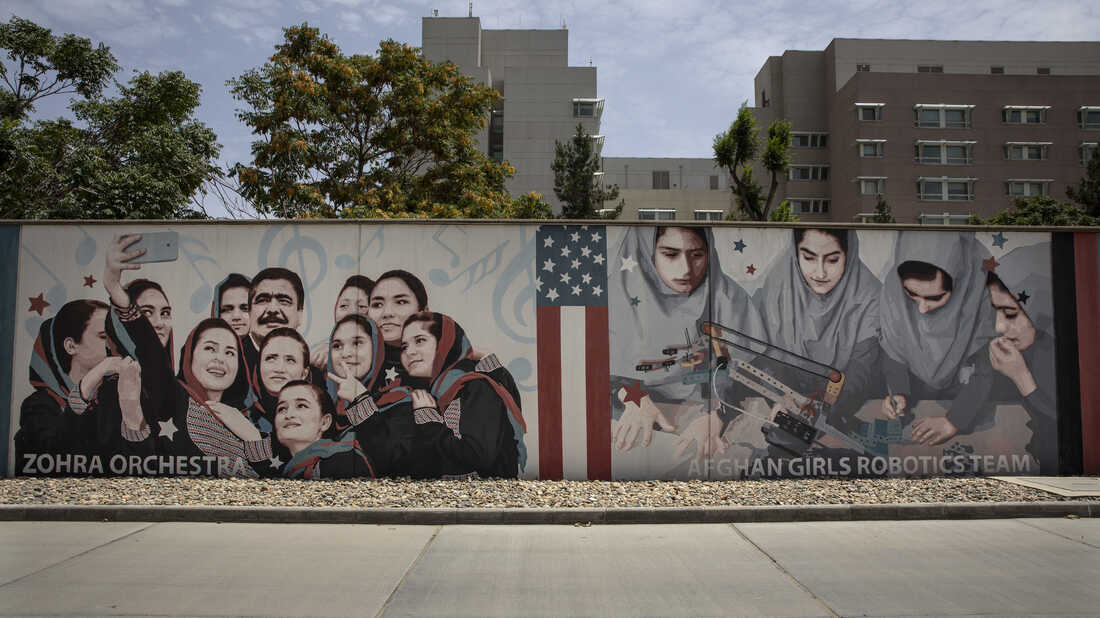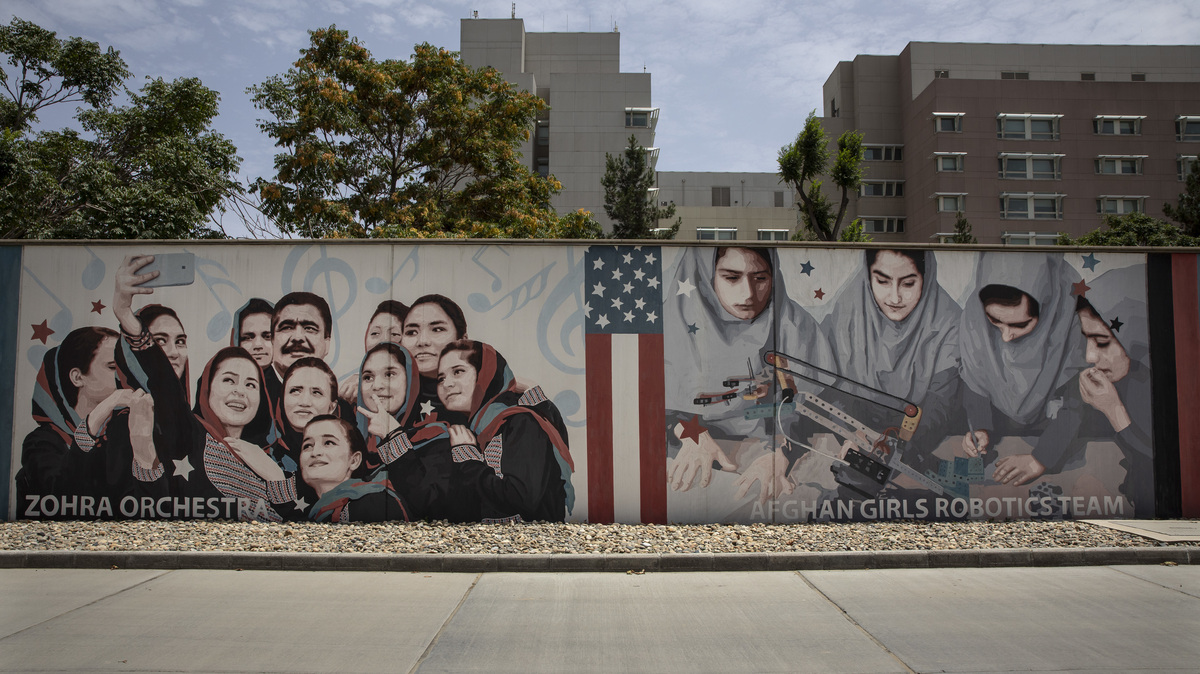
Murals are seen along the walls at a quiet U.S. Embassy on July 30 in Kabul, Afghanistan. Paula Bronstein/Getty Images hide caption

Murals are seen along the walls at a quiet U.S. Embassy on July 30 in Kabul, Afghanistan.
Paula Bronstein/Getty ImagesIn the last week, the Taliban have gained control of large sections of Afghanistan faster than almost anyone expected. The Pentagon is dispatching troops to assist in evacuating staff from the American embassy in Kabul, where refugee camps are growing more crowded. The U.N. says the country may be on the brink of a humanitarian catastrophe.
State Department spokesperson Ned Price told Audie Cornish the 300,000-member Afghan military needs "the willpower" to stand up to the Taliban.
Email us at
This episode was produced by Brent Baughman and Gustavo Contreras. It was edited by Nishant Dahiya, Andrew Sussman, Brianna Scott, and Fatma Tanis. Our executive producer is Cara Tallo.

 Live Radio
Live Radio